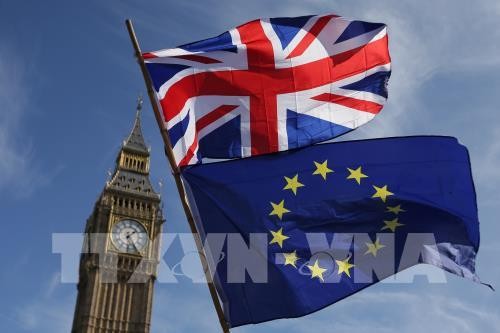(VOVWORLD) - The UK officially left the EU last Friday after nearly half a century, sealing a “divorce” that has drawn much media attention. After 3 years of Brexit talks, the question “What will the UK-EU relationship be like?” remains unanswered.
 The UK and EU flags (Photo: VNA) The UK and EU flags (Photo: VNA) |
During the transition period, currently set to expire on December 31 of this year, the UK will continue to be bound by EU laws, except for being part of the EU political institutions,. All eyes are now on how much each side can do to shape their future relationship, particularly their trade ties, before the transition period ends 11 months from now. Given their current differences, the negotiation process could be even tougher than what has already been undergone.
Challenging negotiations during transition period
Just days after the divorce, both the UK and EU set goals for the talks, that showed differing visions of their future ties, though both want to reach a trade deal. The EU repeated its demand that the UK obey EU regulation ensuring a fair competition if London wants to reach the non-tariff, non-quota agreement Prime Minister Boris Johnson says he wants.
EU chief Brexit negotiator Michel Barnier reiterated the need for a level playing-field when it comes to environmental and social standards and government subsidies. He said a free trade agreement must include a deal on fisheries which will allow both sides to approach each other’s waters and whose conditions must be set up before July 1 this year.
Johnson was quick to reject the EU conditions, saying a free trade agreement does not necessarily have to accept EU regulations on competition, subsidies, environmental protection , or anything else.
From partnership to rivalry
The EU is worried about the UK pursuing new development model because it fears the UK might reject environment, labor, and product quality standards gain a competitive edge with the EU. The phrase “Singapore-on-Thames” has emerged, meaning Britain could become a low-tax, deregulated economy that can out-compete the over-regulated Eurozone. German Chancellor Angela Merkel says the UK is changing from a EU member to a Singapore-style competitor on its border.
After nearly half a century of alignment, Brexit is now “the biggest gamble in a generation” for Britons and the EU.